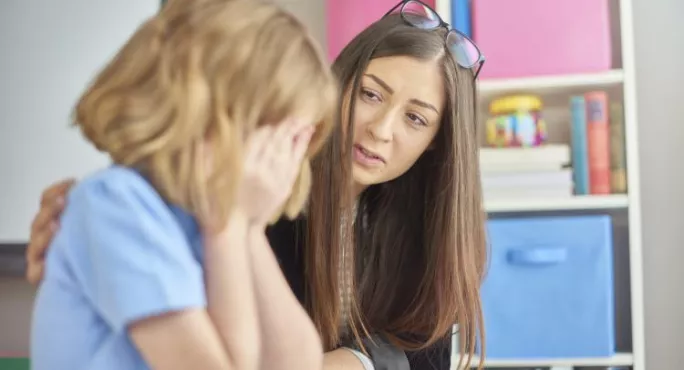- Home
- ‘The Sats culture in this country is warped’
‘The Sats culture in this country is warped’

The basic components of life are cells. Intricate bags of soggy chemicals wrapped in a fragile skin. All the chemistry of life in such a tiny and seemingly simple thing. The human body contains trillions of cells and, thanks to Sats week, they are all in overdrive for thousands of 10- and 11-year-olds across the country.
Billions of nerve cells are doing battle across fledgling brains as they try to coordinate thought, emotion, behaviour, movement and sensation - whilst circling determiners, ticking boxes, remembering the school’s DfE number and spelling their name correctly. The symphony of life in full swing.
The Sats are here and it’s therefore “that” time of the year for the obligatory headteacher rant about the wrongs of Sats week. Too often, when school leaders are listing the reasons why Sats damage children’s education, their only fear is the damage it will do to their future job prospects. They look back to last year’s performance management and ask: “Why did I agree to those targets?”
My favourite writer, Steven Pinker, wrote: “It is wrong to essentialize an entire society as if it were a single mind.” Nothing could be truer than the way we worship at the Sats Altar.
Standardised scores define the child who will leave primary education ready for the trials of secondary school - where within a term they resit the Sats test because no secondary school teacher believes any results that come from their local primary school. These exams do little for the development of trust between schools.
This year, as in any year, Sats are not without their controversy. Parents are revolting and keeping their children home. A YouGov survey found that 63 per cent of parents felt Sats put too much pressure on children. Headteachers lay awake in bed on Sunday night hoping that either no one turned up or everyone turned up. Two children missing would just make the data look terrible. The Sword of Damocles hanging over those few pupils; a thin red line between success and utter failure, triggering Ofsted or, worse, a Facebook campaign to rid the school of “that incompetent head”.
How important are Sats results?
Last year, I said “Enough!” and ended up ranting away on Good Morning Britain about “secret marking dossiers” and bizarre rules that seemed to want children to fail - even when they were right. I had a mass of headteachers contact me to “Stop the Sats”. We felt we would be the agents of change on the issue of Sats, which ramp up accountability in ways that cause our whole primary education system to be warped and twisted. At last, we would stand by our principles and step forward to do what is right by children. So, how did that go?
We are doing Sats this week. All my children are in. I started the morning breakfast with a rousing: “You have worked so hard for this! We are so proud of you!” I meant every word. I am just another headteacher toeing the line and swallowing my principles to do what I am told to do. Teach children to pass the Sats test. At whatever cost. If they are stressed, it is my fault. If they do badly, it is my fault. If they haven’t made progress based on a different test they did in Year 2, it is my fault. When Ofsted come in and my curriculum is not broad and balanced enough, it is my fault.
If I am the type of leader who can’t take the blame, there is a long list I can recite from. I can blame teachers, poverty, the wind, computer games or Tes. We are so polarised when it comes to the merits of testing. The people with the most power to influence change seem to want more and more testing: testing Reception children, testing timetables knowledge.
I do not have any issue with testing: if Sats were just a test, I would happily go along with it. It is not the Sats test I have problems with. It is the Sats culture we have in this country.
It is the way we measure success or failure in our primary education system based on the results from these tests. The way we determine which schools are the best and which are the worst. Which leaders to follow and which to condemn. The way they dictate the curriculum. The way they smother the language of schools and the childhoods of children leaving our schools. The way children with SEND are marginalised and seen as not having learned anything.
It is what is not in the Sats tests that speak of a society unable to understand the complexities of life and the make-up of human beings that are every bit as complicated as the galaxies surrounding us. We are obsessed with breaking life down to a “what you cannot do at 11” list that is so narrow it ignores almost everything about what you can do at 11 and the who you will become.
I speak as someone who left primary school hardly able to read. That was the primary school’s fault but it did not stop me from getting on in life. It did not stop me from doing what I wanted to do. It did not stop me because there was far more to me than the ability to pass a test.
I did not have to worry about Sats and whether I was below average, average or above average.
Our children today do.
Brian Walton is headteacher of Brookside Academy in Somerset. He tweets as @Oldprimaryhead1
Keep reading for just £1 per month
You've reached your limit of free articles this month. Subscribe for £1 per month for three months and get:
- Unlimited access to all Tes magazine content
- Exclusive subscriber-only stories
- Award-winning email newsletters



